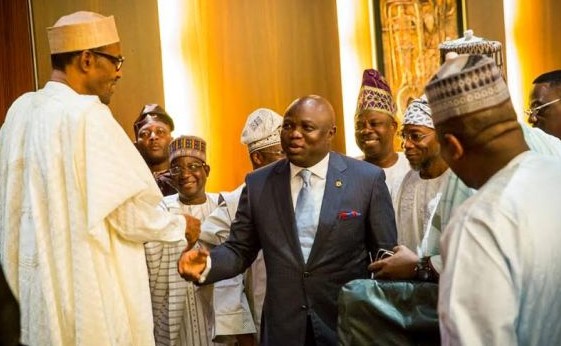
Against the backdrop of the economic crisis
plaguing Nigeria amid falling global oil prices,
the Government is considering changes to the
nation’s tax regime in a bid to shore up
dwindling revenue. There are indications that the government will
increase Value Added Tax, as suggested by
the International Monetary Fund, whose
Managing Director, Christine Lagarde, visited
the country weeks back. But financial experts are insisting that the
move to increase VAT would put further
pressure on Nigerians, as it would cause
increase in the prices of goods and services,
among other implications. VAT is a consumption tax on the goods and
service consumed by any person, whether
government agencies, business organisations
or individuals. It is currently levied at the rate of
5% in the country. The sharp drop in crude oil revenues, which
provide 95 per cent of the country’s foreign
earnings, has led to significant depletion of the
nation’s foreign reserves. Oil prices have fallen in the last few days to
their lowest levels since 2003, trading about
$10 lower than the oil price benchmark of $38
proposed by President Muhammadu Buhari for
this year’s budget. Oil prices staged a rebound
on Friday, trading around $32 per barrel on Saturday. The Minister of Finance, Mrs. Kemi Adeosun, has
said the Federal Government plans to borrow
up to $5bn from multiple sources, including the
Eurobond market, to plug its budget deficit. Buhari had in December presented a total
budget size of N6.08tn, with a deficit of
N2.22tn to be financed by both domestic and
foreign borrowings of N1.84tn. He put the revenue projection for the year at
N3.86tn, adding that over the medium-term,
the government expected to increase
revenues and reduce overheads, to bring the
fiscal deficit down to 1.3 per cent of Gross
Domestic Product by 2018. Vice President Yemi Osinbajo, who said
changes to taxation were being considered,
told CNBC in a television interview, “We are
looking at increasing our tax coverage. He added, “VAT, for instance — we have been
doing just about 20 per cent coverage. We
think that just by increasing coverage, we
could do much more, and so we could earn
more in terms of local resources,” he said. Increasing VAT from 5 per cent, among the
world’s lowest VAT rates, and broadening the
tax base were among suggestions put forward
by the IMF boss during her visit. During her visit, Lagarde also said the IMF did
not support foreign exchange restrictions. The Central Bank of Nigeria, whose monetary
policy committee will meet on Monday and
Tuesday, imposed forex restrictions last year
aimed at conserving foreign exchange
reserves and there have been calls from
investors for these to be eased. “We know that the central bank will just have
to do the right thing at this time. The central
bank has told us, and it was announced even
in the president’s budget speech, that they
intend to take a flexible approach and deploy
whatever tools are necessary to ensure that we stay competitive,” Osinbajo had said. A Professor of Financial Economics at the
University of Uyo, Akwa Ibom State, Leo
Ukpong, described the move to increase taxes
as ill-timed, saying any increase in VAT would
lead to declines in consumption and
investment in the country. He said, “It is not that it is bad to increase taxes;
what is bad is increasing it at the wrong time.
When the economy is going through recession;
when we are not producing; when
unemployment is high, that is not the time to
raise any tax. In fact, the opposite is the case: it is a time you cut taxes so that you can
stimulate consumption and investment. “Increase in VAT is going to destroy the
economy more. Consumption of goods and
services will drop because you’re taking
money away from people, and investment will
drop. Overall, it is going to have negative
effects on the economy, households and businesses.” But Professor Sheriffdeen Tella of the
Department of Economics, Olabisi Onabanjo
University, said there should be increase in
taxes to capture more people and
organisations. He said, “There are a lot of people and
organisations that are not paying tax,
particularly in the informal sector. The
government has to work out a way to capture
the informal sector taxes. “It is not as if they want to impose taxes
generally. Let us look at VAT, for example;
there are some assets that can be regarded as
luxury items. They can increase the tax regime
on those assets. People hardly pay tax on
wealth in this country. They need to capture those people (the wealthy).”
Thank's for reading my article
Nigerians Will Start Paying More Tax (See Details)Created at 2016-01-24

0
Rate up Star
Share:
Star
Share: 





